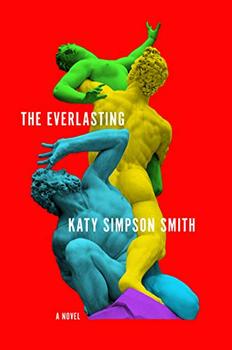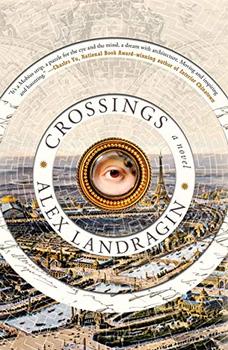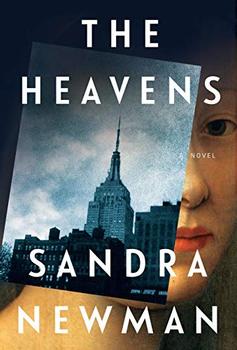Summary | Excerpt | Reviews | Beyond the book | Read-Alikes | Genres & Themes | Author Bio

Broad and ambitious in scope, The Everlasting endeavors to capture the history and spirit of Rome across generations. It opens with an epigraph from the poem "Adonais" by Percy Bysshe Shelley:
"Go thou to Rome—at once the Paradise,
The grave, the city, and the wilderness."
The plot begins in 2015 with a section titled "The Wilderness," which introduces us to Tom, an American field biologist studying a group of crustaceans called ostracods. Though still married, Tom spends his days alone while his wife is back in California with their daughter, and reflects on the failed state of their marriage. This novel is dense at times, and Tom's sections offer little reprieve; the crumbling marriage and allure of an enigmatic Italian woman a sort of clichéd setup that doesn't feel like it quite earns its length, or the reader's investment. This section does, however, establish the novel's central theme: desire and temptation, and whether succumbing to temptation is inherently immoral.
In 1559, in "The City," Smith's protagonist is a real-life historical figure, Giulia de' Medici, daughter of Alessandro de' Medici, Duke of Florence. The parentage of Alessandro is unverified, but he is believed to have descended from a servant of African ancestry who worked in the Medici household, making him and Giulia both biracial. Giulia's possible Moorish roots are a focus of Smith's narrative, as is a fictional affair with the artist of her famous portrait, Alessandro Allori. Newly married to Bernadetto, a cousin of Cosimo de' Medici, Giulia finds herself pregnant by Allori, a predicament she struggles with as someone unwilling to relinquish any control over her own life.
"The Grave," set in 896, brings us to a medieval monk, Felix, in charge of the church's putridarium—an underground chamber which houses decaying bodies of monks until the bones can be collected for storage in an ossuary. Now an old man, Felix reflects back on a boy he once loved, whose rejection he feared so intensely that he sought a life in a monastery rather than face the rejection outright: "Felix had inklings already that love was impossible to untangle from wrongdoing." Smith's thesis of the inextricability of love from sin is perhaps most acutely felt in Felix's section, though the theme is addressed most thoroughly with the novel's final character.
In "The Paradise," set in 165, we meet Prisca, another historical figure. She is a 12-year-old girl living in Rome under Marcus Aurelius' rule, and she is alluded to in earlier sections as a martyr of early Christianity. Little is known about her life, but Smith's imagined version is curiously at odds with traditional notions of holiness, discovering sexual desire and wondering at the place of pleasure in the context of her religion. "[W]hat of the world was good because it was created by God, and what of the world was bad because it was a tricky illusion meant to pull you off the path to heaven," she muses.
After the reader has visited each character once, they each get a second chapter—only two sections total per character. The novel is punctuated by bracketed interjections, the speaker of which soon reveals himself to be Satan, which reinforce the novel's central theme of faith corrupted to sin. ("When did a human first consider her own beauty? [When another human first denied it. Cf. Adam re: Eve. I, the snake, was the soother. Ask your questions; I, Satan, am the answerer.]") The Everlasting is a wildly ambitious book that is sometimes more compelling for its ideas and structure than its narratives, but it ultimately comes together as a cohesive, clear-eyed portrait of a city where love, lust, and immorality have been inextricably combined for centuries.
![]() This review was originally published in The BookBrowse Review in April 2020, and has been updated for the
April 2021 edition.
Click here to go to this issue.
This review was originally published in The BookBrowse Review in April 2020, and has been updated for the
April 2021 edition.
Click here to go to this issue.

If you liked The Everlasting, try these:

by Alex Landragin
Published 2021
Alex Landragin's Crossings is an unforgettable and explosive genre-bending debut--a novel in three parts, designed to be read in two different directions, spanning a hundred and fifty years and seven lifetimes.

by Sandra Newman
Published 2019
Transporting the reader between a richly detailed past and a frighteningly possible future, The Heavens is a powerful reminder of the consequences of our actions, a poignant testament to how the people we love are destined to change, and a masterful exploration of the power of dreams.
Your guide toexceptional books
BookBrowse seeks out and recommends the best in contemporary fiction and nonfiction—books that not only engage and entertain but also deepen our understanding of ourselves and the world around us.